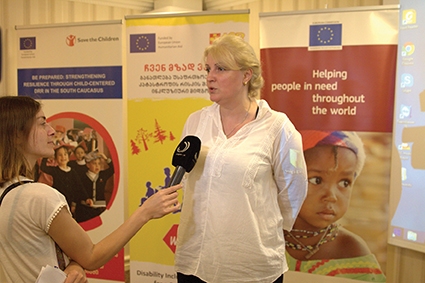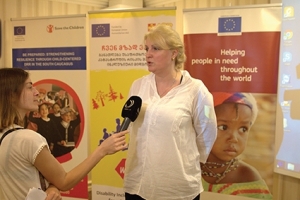EU Continues to Support Disaster Risk Reduction in South Caucasus
Saving Lives and Livelihoods by Preparing for Natural Disaster- has been the core principle of the European Commission's disaster preparedness program "DIPECHO" since 1996.
The fourth phase of the program to "Improve Resilience of Communities and Institutions in the South Caucasus” has already started.
The official launch will take place on 23-24 June 2016 in Batumi.
The regional initiative is funded by the European Commission Humanitarian Aid & Civil Protection Department (ECHO) and implemented in cooperation with four partner organizations: the Danish Red Cross, Oxfam, Save the Children, and Arbeiter-Samariter-Bund Deutschland (ASB).
During the launch event, representatives from international and local organizations will be present, as well as representatives of the State Security and Crisis Management Council of Georgia, the Emergency Management Agency under the Ministry of Internal Affairs of Georgia, the Ministry of Education and Science of Georgia, the Ministry of Sport and Youth Affairs of Georgia, the Ministry of Labour, Health and Social Affairs of Georgia, Adjarian Emergency Situations Management Agency, the Ministry of Finance and Economy of Adjara, the Ministry of Agriculture of Adjara, the Department for Protection of Environment and Natural Resources of Adjaran, and representatives of municipalities from Adjara.
The program “Disaster Risk Reduction to Improve Resilience of Communities and Institutions in the South Caucasus” aims at increasing resilience and reducing the vulnerability of communities and local institutions in areas prone to natural hazards, with a special emphasis on children, women and youth. It aims to boost the local capacities of communities to better prepare for and respond to disasters and further develop and include disaster management and risk reduction in education and national security planning.
The concerted efforts of all partners involved in the implementation of this program will further strengthen cooperation among stakeholders, and foster the sharing of best practices in disaster risk reduction and climate change adaptation. The program will be implemented in close coordination with the Government of Georgia as well as regional and local authorities to encourage the development of DRR policies and legislation for disaster risk reduction and sustainable program interventions.
Katie Ruth Davies












